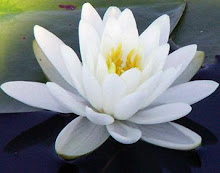
Filmmaker Kwame Mante is of the DIY generation. Armed with affordable equipment, bright ideas and a global audience just a keyboard away, Mante set about turning his ideas into celluloid. A young man made of one part humour and two parts ambition with a smile fit for any toothpaste advertisement, he is instantly likable.
Had you asked a younger Mante what he wanted to be when he grew up, his response would have placed him in front of the lens rather than behind it: “I was a creative kid and was really into acting; I guess you could say I was centre of attention a lot of the time.”So, what changed? “I was also into storytelling and story making; so eventually decided I wanted to become a filmmaker,” he explains.
Dusting off the “old family camera” as a teenager, he began to put his career plans into action. Fast forward a decade and a degree later, BlakkDon Productions is in existence and has its first release: I’m An African, a short documentary exploring the 24-year-old’s personal experience as a British-born Ghanaian growing up in North London. He said: “Growing up, I felt that in the black community there was a difference between Africans and Caribbeans. When I was young, I didn’t understand it; as far as I was concerned, we were all black and from Africa – just via different routes. As I grew older I wanted to show what it meant to be an African and that became the premise for my documentary.”
Exercising the rights of the DIY generation, Mante posted the trailer for I’m An African on YouTube and MySpace, where it began circulating amongst university students. This eventually led to a personal invitation from the School of African and Oriental Studies to offer a special screening of his debut film.

Showing pride in African (specifically Ghanaian) culture and unabashedly ending on a positive note, Mante’s documentary is a far cry from the prevalence of media like Kidulthood and Bullet Boy. “I do appreciate those films for what they are; we cannot hide from the fact that certain things are happening in this society. However, I don’t feel these films tackle the underlying issues or provide solutions. We need to address a balance,” Mante said candidly.
Though his deliberate difference does not come from an egotistical urge to appear diverse, it does come from a place that advocates change. It is not surprising then that among his list of those who inspire him most are President Barack Obama, Lewis Hamilton, Quentin Tarantino and his namesake Kwame Kwei-Armah; all movers and shakers in their respective fields.

Does this mean we can expect to see Mante appearing in his own films and espousing mantra-like mottos? “As filmmakers, we have to give a piece of ourselves in order to get that recognition and to show where we’re coming from,” he said. “Spike just did it literally and figuratively. As for mottos, I think of inspiring thoughts or phrases for the day, put them on a post-it and stick it on my wall. I can’t even see my wall anymore. If you don’t motivate yourself every day, you might as well stay in bed.”

With a wall of wisdom in existence, one has to ask if there are any pearls he would care to share with budding filmmakers. Without hesitation he says, “You cannot be a wallflower and be a filmmaker; that doesn’t make sense. You must have an idea and be confident that it will work. You have to put yourself out there and take risks in order to grow and develop. I’ve had to put myself out there and it’s not easy; not everybody has warmed to the things I have done. But you have to take certain things on the chin and develop a thick skin; self-efficacy is something I have taken to hand.”

Despite his passion for all things film-related, Mante is hesitant to label himself, or at least stick with one label for very long. “I don’t consider myself just a filmmaker. I write poetry, blogs; I’m in the process of writing a novel as well as working on I’m An African Part 2. At the moment, I have my ‘social commentator’ hat on. I really want to explore the society we live in and explore roles that aren’t necessarily tackled. For people of African descent, our traditions are steeped in the oral; I feel we need more of a documented legacy.”
© Rachelle Hull, 2009
Published at www.sevenglobal.org






1 comment:
Thanks. Now I know. peace
Post a Comment